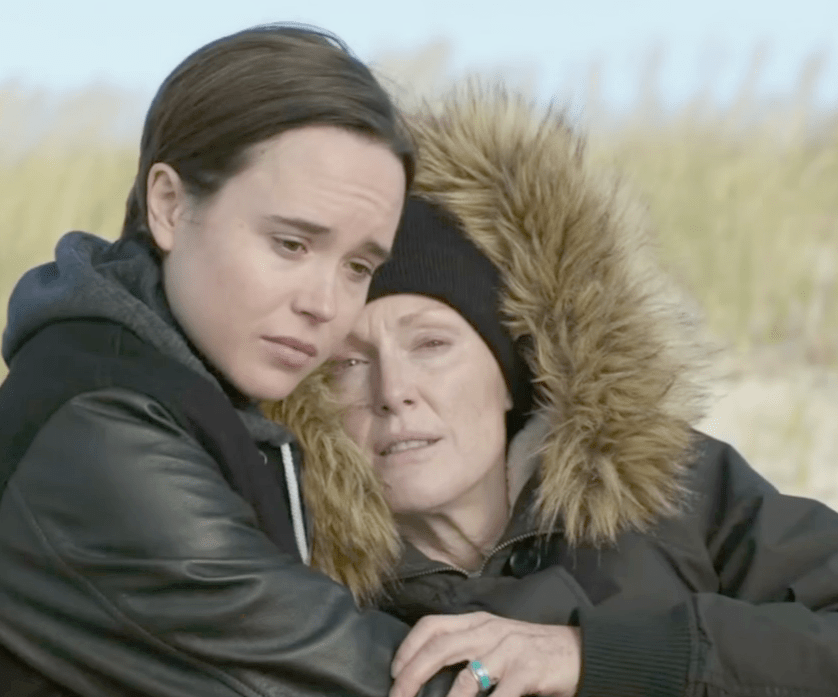We’ve seen lesbian love on celluloid several times before. Julianne Moore also starred in the comedy drama The Kids Are All Right back in 2010, but few of them have had the potential on paper to clean up during awards season like Peter Sollet’s Freeheld. Inspired by an Oscar-winning documentary short of the same name, it details the real-life events of Laurel Hester’s relationship with a significantly younger woman, Stacie Andree.
Now this is a fight, Rocky
Hester (Moore) is a New Jersey police officer who has had to fight considerably harder for the same respect automatically afforded to her male colleagues. As a result of that hard work, she’s enjoyed success in her professional life, but her personal life has suffered – the need to keep her sexual persuasion private, even from her police partner (Shannon), has complicated things. When she meets Stacie (Page) she dares to start building the life she’s always dreamed of …
All that comes crashing down when she’s diagnosed with advanced stage lung cancer and her attentions instead turn to providing for Stacie when she’s gone. When the state freeholders refuse to pass on Hester’s pension benefits to Stacie, on the grounds that they’re not ‘man and wife’, a fight begins to change the state legislature to recognise the rights of domestic partners.
This ain’t a script, Philadelphia
There’s a strong moment early in the film when Stacie is about to answer Hester’s mobile phone. Hester snatches the phone away and scolds the younger woman for her lack of foresight. It’s a powerful scene because, even though we know that these women loved each other very much, it offers some shades of complexity to their relationship. It illustrates Hester’s frantic fear over her work colleagues discovering her sexuality, and at the same time, it addresses their age gap and explores the power dynamics between a girl and an older woman. Hester reprimands Stacie like a mother with her child – but sadly, such compelling moments are rare.
Page and Moore work hard to disguise a ‘by the numbers’ script by Ron Nyswaner (Philadelphia) with didactic dialogue throughout. What they couldn’t possibly have countered is a nauseatingly outdated musical score that tells us what we should be feeling at every given emotional juncture.
The support from Michael Shannon is strong, but Steve Carrell arrives seemingly from another planet. As a LGBT rights lawyer, Carell’s loud and proud camp here is clichéd and off-key.
But this is a story, people
There’s no denying the power of the events that inspired this film, and while I haven’t seen the documentary short that preceded this dramatisation, one imagines that the legacy of Hester and Stacie’s triumph over homophobia and bureaucracy is better served by that approach than this one.
Supporting this, the most moving moment in the film comes before the end credits when we’re shown a series of photographs of the protagonist’s real-life counterparts. Seeing these images of two people, clearly in love, coupled with the knowledge of the hardships they endured, has more impact than anything the filmmakers managed to muster prior to that.
Only the central performances from Moore, Shannon and Page elevate this above the ‘TV Movie of the Week’ standard of writing and direction that constantly stifles them. Certainly Hester and Stacie should be remembered and celebrated – Peter Sollett’s Freeheld on the other hand, not so much.















